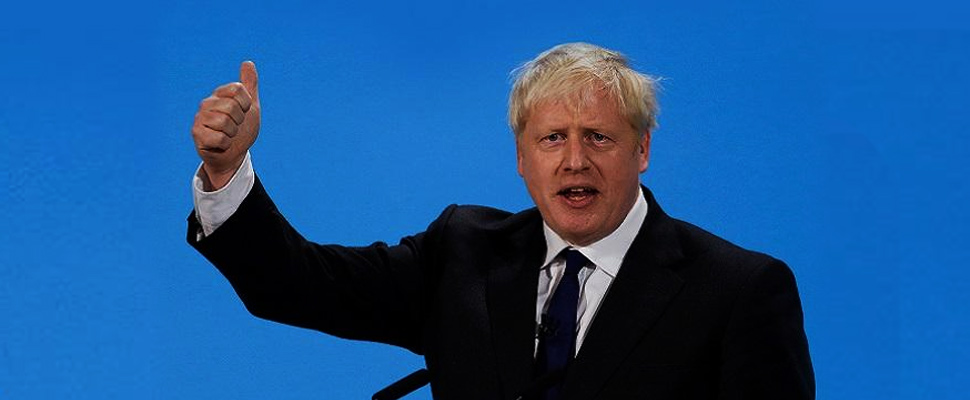Brexit: Confident Johnson challenges opposition
Since Boris Johnson announced the suspension of Parliament, which would go from September 10 to October 14 a decisive period of time for important issues, many members of it have opposed his decision.

Boris Johnson, Prime Minister of the United Kingdom. / Via REUTERS
LatinAmerican Post | Laura Viviana Guevara Muñoz
Escucha este artículo
Leer en español: Brexit: Johnson confiado reta a la oposición
Boris Johnson is the third prime minister who has left the wave of Brexit. It has been characterized by its radicalism regarding the positions on the United Kingdom's exit from the European Union, since it is very difficult for it to change its mind, after announcing that with agreement or without agreement its country will leave on October 31.
Johnson had justified the arrest in Parliament on the grounds that he needed to prepare his national policy program, something valid and usual in the United Kingdom. Despite ordering the suspension of Parliament, last Wednesday, the entity returned to work after the decision of the Supreme Court to declare the closure as "illegal and without effect."
This is Johnson's strongest setback in his term as Prime Minister, so he was forced to end his presence at the summit at the UN General Assembly to reach his country and try to control the wave of criticism that are presented in Parliament. It has even come to ask for his resignation.
Something that for James Palumbo, British aristocrat and in dialogue with La W, is not so easy to happen. Palumbo said that "Boris Johnson will not renounce his position as prime minister, from there you will see how events unfold."
Also read: Donald Trump could face political trial
A controversial return
Upon his return, aboard an Airbus A330 with a capacity for 355 people, Johnson came to challenge the opposition in Parliament. In his speech, shaking his arms strongly, he shouted "come on, come on," challenging the opposition to file a motion of censure or let "this government move on with Brexit."
The motion of censure, and which was attempted when May was still serving as Prime Minister, intends – through the vote – to determine if a person in a position is no longer adequate to exercise that position, either because they do not fulfill their responsibilities, or make decisions that other members of Parliament find harmful.
According to this, EuroNews said, "Article 2 of the Law of Parliaments of 2011 establishes the question on which deputies will be asked to vote: 'That this House does not trust the Government of His Majesty'".
If the opposition were to give in to Johnson's request, and if he failed to confirm an alternative government to take over within 14 days, elections would have to be held. A scenario that Johnson looks forward to since according to several polls to conduct elections, the Prime Minister leads as a favorite.
However, the opposition (which is headed by the Labor Party) has decided not to fall into the trap. According to the country, those who disagree with Johnson will not get into elections until they are sure that Brexit without agreement is halted. Given this, James Corbyn said that "if we want elections, it is necessary to get an extension and with this, we will go to the polls".
Read also: Brexit drama seems to have no end
All ready to go
As already mentioned, Johnson's determination to leave the European Union on October 31 is stronger than the obstacles that the opposition has put on him. In this way, and in his speech in Parliament, he said that progress has been made on the key issues that concern a 'hard Brexit'.
This is how the Prime Minister said that issues such as avoiding the border of Ireland, were being treated with the greatest care to "keep Ireland united in sanitary and phytosanitary matters," according to The Spectator.
In addition, he hopes to have a draft of the new version of the exit pact for October 17 or 18, where he will be voted for or against. The last deadline to try to reach an agreement will be October 19, and not to do so (something that happened in the past with Theresa May), Johnson will have to request a new extension.
Another new setback caused by the Parliament, because before it was suspended, the opposition managed to pass a law, in which the Prime Minister “would have to request an extension of Brexit to the European Union by October 19 if he fails to get it to ratify an agreement or an express permission from Parliament for a disorderly exit from the community bloc ”, according to La Vanguardia.
History will be repeated and if the new date is achieved, the departure of Brexit is going to be on January 31, 2020.





